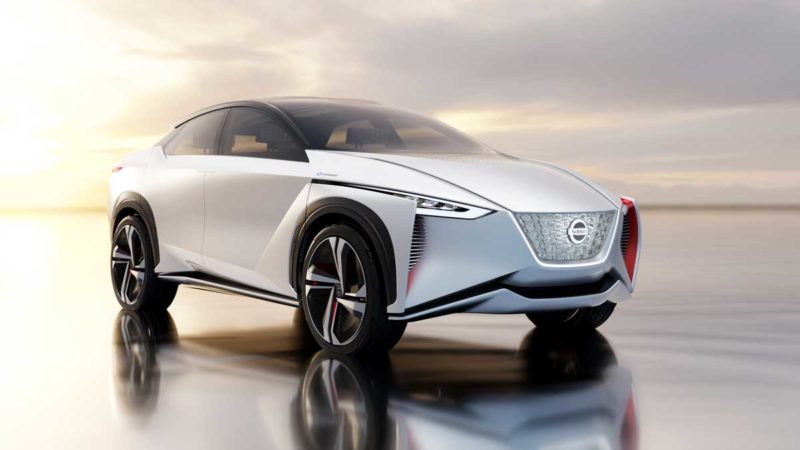An all-electric compact SUV will replace the longstanding – and trail-blazing – Leaf in Nissan’s all-electric line-up by 2025, it has been revealed.
The news comes as Europe hurtles towards the introduction of Euro 7 fuel standards by mid-decade, an expensive R&D reality that has Nissan instead looking to more electrification.
According to the new report from Autocar, Nissan will make more electrified cars rather than inject funds into making new combustion models that to comply with the new standards, simply because it can make more profits from its already well-developed electrification technology.
“Strategically, we bet on electrification,” said the firm’s Europe boss, Guillaume Cartier according to Autocar.
“If we invest in EU7, the ballpark cost is about half the profit margin per car, around €2000 you would have to pass onto the customer. So we bet on EV, knowing it will decrease in cost.”
But first, a little about the Leaf. Nissan has been selling the Leaf since 2010, which has in its time gone through several incarnations.
From its early days as a bubble-like, friendly little hatchback with a very modest range of 117km from a 24kWh battery, it has since moved through a series of battery upgrades to evolve into the range-topping Leaf e+ with 62kWh battery that boasts 364km range (based on the US EPA rating) as well as vehicle-to-grid charging capabilities.
Nissan is the only carmaker other than Tesla that saw early on the benefits to be had from full electrification of transport. With more than a decade of Leaf sales under its belt it has now sold more than 500,000 units of since its inception.

But the loyal little Leaf has now had its day, it would seem.
Replacing it will be a new low-riding crossover that will be built on the same platform as the Ariya and is expected to launch around 2025, alongside the upcoming all-electric Ariya, as well as electrified versions of the Juke, Qashqai, and X-Trail.
The news comes via Autocar, which reports that the new electric SUV will be built at Nissan’s UK plant for the European market, and possibly North America as well. It will use the manufacturer’s CMF-EV platform, shared with Renault and Mitsubishi, which will also be used by the larger Ariya crossover due to arrive early next year.
The SUV is expected to be manufactured at a rate of 100,000 units per year and its battery will be manufactured with all new Envision AESC battery cell technology that will be manufactured in a new gigafactory.
All is not lost however, for those after a compact, practical electric hatchback. According to Cartier, Nissan will source the underpinnings of a Micra-sized car which would “absolutely” be electric from its partners Mitsubishi and Renault.

Bridie Schmidt is associate editor for The Driven, sister site of Renew Economy. She has been writing about electric vehicles since 2018, and has a keen interest in the role that zero-emissions transport has to play in sustainability. She has participated in podcasts such as Download This Show with Marc Fennell and Shirtloads of Science with Karl Kruszelnicki and is co-organiser of the Northern Rivers Electric Vehicle Forum. Bridie also owns a Tesla Model Y and has it available for hire on evee.com.au.


